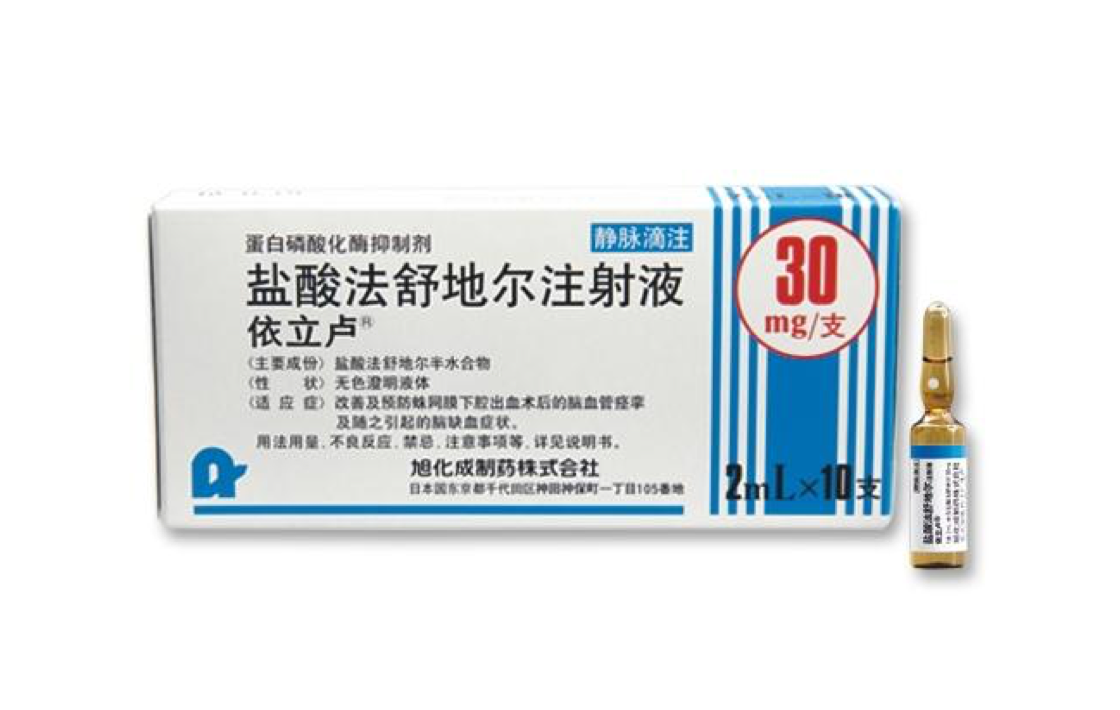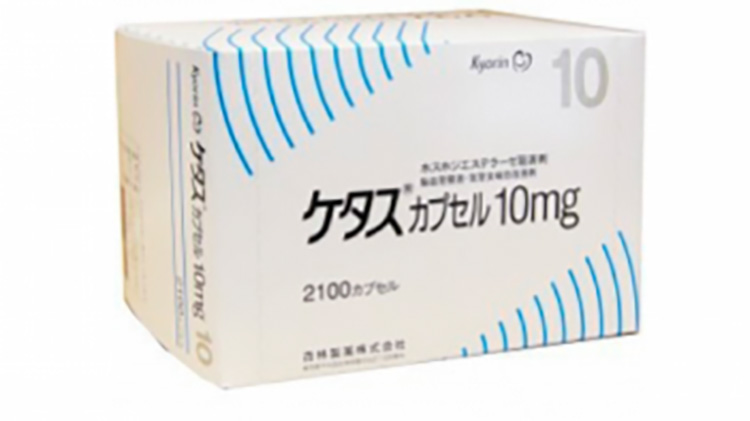Eril (fasudil hydrochloride) vs Ketas (ibudilast)
Eril (fasudil hydrochloride) vs Ketas (ibudilast)
Eril (fasudil hydrochloride) is primarily used as a vasodilator to treat cerebral vasospasm and is known for its role in inhibiting Rho kinase, which leads to the suppression of smooth muscle cell contraction. Ketas (ibudilast) has a broader range of action, as it not only acts as a vasodilator but also exhibits anti-inflammatory and neuroprotective effects, and is used in the treatment of asthma and post-stroke complications, with potential applications in neurodegenerative diseases like multiple sclerosis and Parkinson's disease. When deciding between the two, a patient should consider the specific condition being treated, as Eril is more focused on cerebral vasospasm, while Ketas may be suitable for conditions requiring both vasodilation and modulation of the immune response.
Difference between Eril and Ketas
| Metric | Eril (fasudil hydrochloride) | Ketas (ibudilast) |
|---|---|---|
| Generic name | Fasudil hydrochloride | Ibudilast |
| Indications | Cerebral vasospasm, subarachnoid hemorrhage, and prevention of angina | Asthma, cerebrovascular disorders, and multiple sclerosis |
| Mechanism of action | Rho kinase inhibitor | Phosphodiesterase inhibitor |
| Brand names | Eril | Ketas |
| Administrative route | Intravenous | Oral |
| Side effects | Headache, hypotension, and gastrointestinal symptoms | Nausea, diarrhea, and abdominal pain |
| Contraindications | Hypersensitivity to fasudil or any component of the formulation | Hypersensitivity to ibudilast or any component of the formulation |
| Drug class | Rho kinase inhibitor | Phosphodiesterase inhibitor |
| Manufacturer | Asahi Kasei Pharma | Kyorin Pharmaceutical Co., Ltd. |
Efficacy
Efficacy of Eril (Fasudil Hydrochloride) in ALS
Eril, known generically as fasudil hydrochloride, is a rho kinase inhibitor that has been investigated for its potential benefits in the treatment of Amyotrophic Lateral Sclerosis (ALS). While fasudil has not been traditionally used for ALS, it has been the subject of research due to its neuroprotective properties. Studies have suggested that fasudil may slow the progression of ALS by improving neuronal survival and protecting against oxidative stress. However, it is important to note that the evidence supporting fasudil's efficacy in ALS is still emerging, and more extensive clinical trials are needed to establish its therapeutic value for this indication.
Efficacy of Ketas (Ibudilast) in ALS
Ketas, with the active ingredient ibudilast, is another medication that has been explored for off-label use in ALS. Ibudilast is primarily known as a phosphodiesterase inhibitor and has been used for conditions like asthma and post-stroke complications. In the context of ALS, ibudilast is thought to exert neuroprotective effects by inhibiting pro-inflammatory cytokines and promoting the survival of motor neurons. Clinical trials have been conducted to assess the efficacy of ibudilast in slowing the progression of ALS. Some results have indicated a potential for ibudilast to modestly slow disease progression, but as with fasudil, further research is necessary to confirm these findings and to fully understand the therapeutic potential of ibudilast in ALS patients.
Comparative Studies and Current Research
Comparative studies evaluating the efficacy of Eril (fasudil) and Ketas (ibudilast) directly against each other in the treatment of ALS are limited. Most research has focused on the individual effects of these drugs in preclinical models or in separate clinical trials. As such, the medical community does not yet have a consensus on the comparative efficacy of these two medications for ALS. Ongoing research is crucial to determine the most effective treatment protocols, including potential combination therapies that may leverage the neuroprotective mechanisms of both fasudil and ibudilast.
Conclusion
In conclusion, both Eril (fasudil hydrochloride) and Ketas (ibudilast) have shown promise in preclinical and early clinical studies for the treatment of ALS. Their neuroprotective properties may offer new avenues for therapeutic intervention in a disease that currently has limited treatment options. However, the efficacy of these drugs for ALS remains to be fully validated through larger, well-designed clinical trials. Healthcare professionals and patients should remain informed about the latest research developments to make evidence-based decisions regarding the use of these medications for ALS.
Regulatory Agency Approvals
Eril
-
Pharmaceuticals and Medical Devices Agency (PMDA), Japan

Ketas
-
Pharmaceuticals and Medical Devices Agency (PMDA), Japan

Access Eril or Ketas today
If Eril or Ketas are not approved or available in your country (e.g. due to supply issues), you can access them via Everyone.org.
How it works

Make an enquiry
Choose the medicine you want to buy, answer a couple of questions, and upload your prescription to speed things up. We’ll get back to you within 24 hours.


Make an enquiry
Choose the medicine you want to buy, answer a couple of questions, and upload your prescription to speed things up. We’ll get back to you within 24 hours.


Breeze through the paperwork
We'll guide you through the required documents for importing unapproved medicine, ensuring you have all the necessary information.


Get a personalized quote
We’ll prepare a quote for you, including medicine costs and any shipping, administrative, or import fees that may apply.


Receive your medicine
Accept the quote and we’ll handle the rest - sourcing and safely delivering your medicine.

Some text on this page has been automatically generated. Speak to your physician before you start a new treatment or medication.
Let's talk
If you have any questions, call us or send us a message through WhatsApp or email:
Contact us




